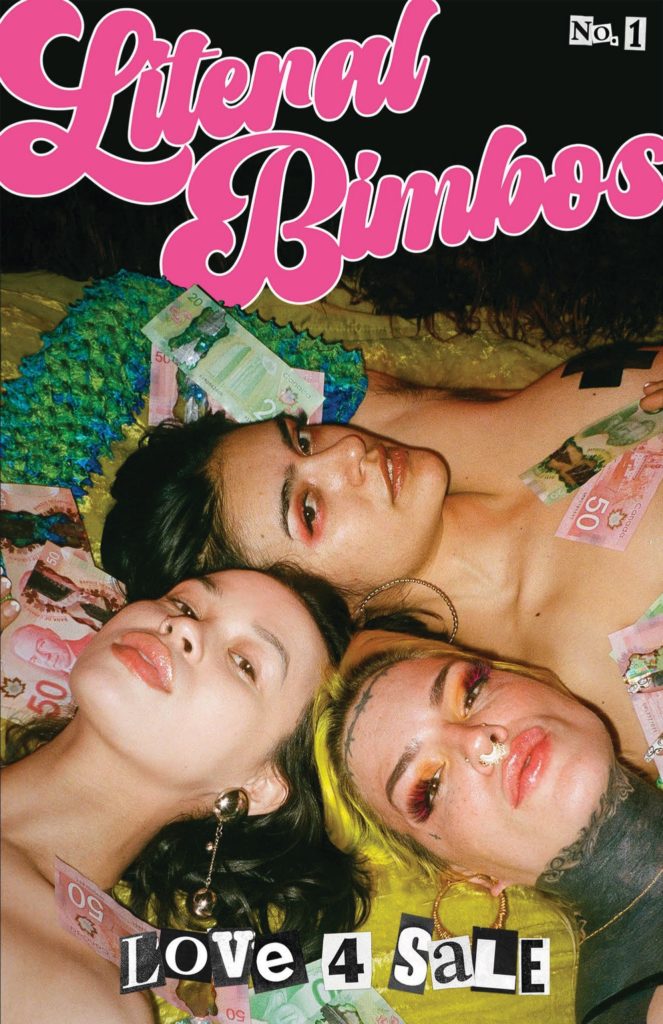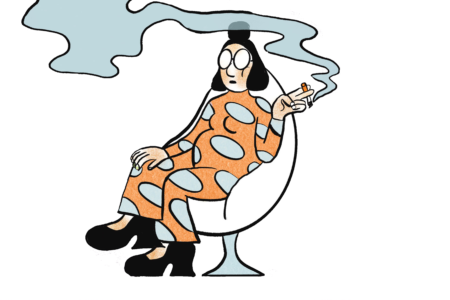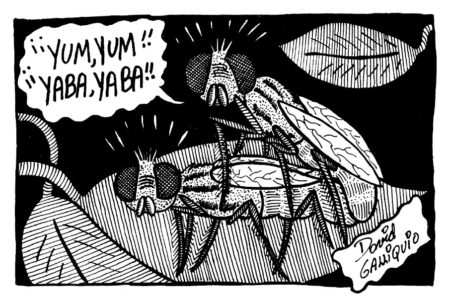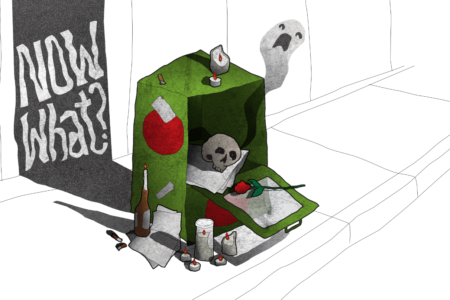
Literal Bimbos
Litzine, Issue 1, Edited by Andrea Werhun, 35 pgs, literalbimbos.com, $10
Dare I call Literal Bimbos, a literary zine by and for sex workers, a work of art? Its aesthetic, with its glut of glittery, girly stickers, is apt and eye-catching but not too busy. There is a good mix of analog (cut-and-paste letters) and digital design (the title). I highlight these aspects because as with all good art, adding or subtracting any element will not improve it. On top of that, the photography is fire.
But my thoughts on this zine being art have more to do with it conveying deeply relatable feelings through a fresh new perspective. The internet has democratized free expression such that most identity categories now have a modicum of a voice, but the sex worker’s point of view continues to be rare. When I read Literal Bimbos, I’m reminded of the thrill of discovering Sassy, a “women’s” magazine that was mercifully not geared toward the most basic common denominator. Until then, I didn’t know such rags existed. I’m not in their target market but I feel like Literal Bimbos has a wider appeal. A theme of gift-giving runs through this first issue and is rightfully portrayed as a love language. It’s what you would expect from another magazine’s Valentine’s Day issue, except that the suggested presents here are things that people actually enjoy.
I found the stories, both memoir and fiction, relatable to my own relationships despite the difference in whether an economic exchange occurred. Who hasn’t been in a relationship where one person is torn between giving the other some grace or holding fast to their own worth as they walk out the door?
For me, the stand-out piece is Kitoko Mai’s take on the movie Pretty Woman. The way Mai couches the plot as it relates to capitalism is a refreshing take on a flick rife with its creators’ weird hang-ups about sex and money. She conveys that what a sex worker really wants is not to “be rescued,” it’s to have decent customers. In that same vein, an interviewee’s answer to, “What has [sex work] taught you?” is “Does it have to have taught you something? Work is work.” For these bimbos, the art of sex work is just that simple.





